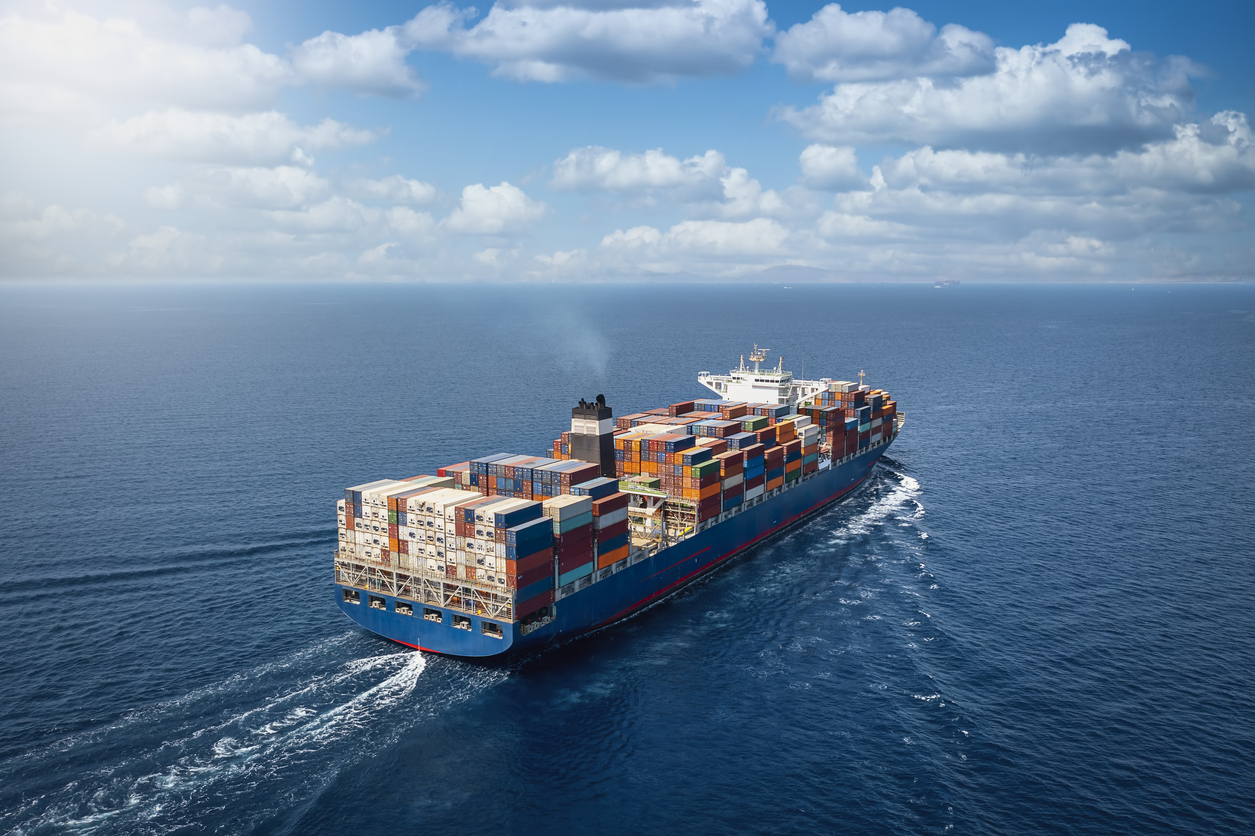From Point A to B: Simplifying the Process of Shipping Goods from Germany to Tunisia
From Point A to B: Simplifying the Process of Shipping Goods from Germany to Tunisia
Shipping goods from one country to another can be a daunting task, especially when it comes to dealing with different customs regulations and paperwork. But fear not! If you’re shipping goods from Germany to Tunisia, we’ve got you covered. In this blog post, we’ll walk you through the process step by step and provide helpful tips along the way. So, whether you’re a business owner or simply sending a gift to a friend, sit back and relax as we simplify the journey from point A to B for you!
Introduction to Wigmore Trading
Wigmore Trading is a leading international shipping company specializing in the transport of goods from Germany to Tunisia. We have been in business for over 20 years and have established a reputation for providing reliable and efficient service. We offer a variety of shipping options to meet your needs, including express shipping and deferred delivery. We can also provide you with information about customs clearance and other procedures required for importing goods into Tunisia. Contact us today to get started on your shipment.
Overview of Shipping Process from Germany to Tunisia
When shipping goods from Germany to Tunisia, it is important to be aware of the customs regulations and restrictions that apply to the country of destination. All shipments must be declared at the port of entry in Tunisia, and supporting documentation such as commercial invoices and packing lists must be provided. Goods may be subject to inspection by Tunisian customs authorities, and delays are common.
It is recommended to use a professional shipping company that has experience with shipping to Tunisia in order to avoid any potential problems. The company will be able to handle all of the necessary paperwork and ensure that the shipment arrives safely and on time.
Documentation Required for Shipping Goods
When shipping goods from Germany to Tunisia, documentation is required in order to ensure that the shipment arrives safely and on time. The required documents vary depending on the type of goods being shipped, but typically include a commercial invoice, a packing list, and a bill of lading.
If you’re shipping commercial goods, you’ll need a commercial invoice which itemizes the products being shipped and provides detailed information about each one. This document is used by customs officials to determine the value of the shipment and calculate any applicable tariffs or taxes.
A packing list is also required in order to accurately describe the contents of the shipment. This document should include a description of each item, the quantity of each item, the weight of each item, and the dimensions of each item. The packing list is used by customs officials to verify that the contents of the shipment match what is listed on the commercial invoice.
A bill of lading must be obtained from the carrier in order to ship your goods. This document acts as a contract between you and the carrier, and includes important information such as the route of travel, estimated arrival date, and insurance coverage.
Packaging and Labeling Requirements
Labeling and packaging requirements for shipping goods from Germany to Tunisia are fairly straightforward and not overly complicated. All shipments must include a packing list that details the contents of the package, and each box or container must be clearly labeled with the sender’s name, address, and contact information, as well as the recipient’s name and address. It is also important to note that Tunisia has strict regulations regarding the import of used goods, so all items being shipped should be new and still in their original packaging.
When it comes to packing the actual shipment, it is best to use sturdy boxes or containers that can withstand rough handling. All items should be securely packed inside to prevent damage during transit. If possible, try to avoid using Styrofoam peanuts or other loose fillers as they can easily escape from packages and create litter. Tunisian customs may also open and inspect packages before allowing them into the country, so be sure to pack everything in a way that will make it easy for them to do so without damaging your goods.
Timeframe for Delivery
The shipping process from Germany to Tunisia can be complicated, but we have a few tips to make it simpler. First, you need to determine the mode of transport that best suits your needs. There are three main options for shipping goods from Germany to Tunisia: air, land, and sea.
Air shipping is the quickest option, but it is also the most expensive. If time is not a factor, or if you need your goods delivered urgently, air shipping is the best choice. Land shipping is the cheapest option, but it takes the longest time. If you can afford to wait a bit longer for your goods to arrive, land shipping is a good option. Sea shipping is somewhere in between air and land shipping in terms of cost and time.
Once you’ve determined the best mode of transport for your needs, you need to find a reputable company to handle the shipment. There are many companies that offer shipping services from Germany to Tunisia, so do some research to find one that has experience with the route and that offers competitive rates.
You need to figure out the paperwork involved in shipping your goods. The German Export Control Act requires an export license for certain goods, so be sure to check whether your shipment requires one before proceeding. Once all of the necessary paperwork has been completed, your goods will be ready to ship!
Insurance Options for Shipment
There are a few different ways to insure your shipment when you’re sending goods from Germany to Tunisia. The most important thing is to make sure that you have some sort of coverage in case something goes wrong during transit.
One option is to purchase insurance from the shipping company that you’re using. They will typically offer some sort of coverage, although the details will vary depending on the company. It’s always a good idea to read the fine print carefully before purchasing any insurance.
Another option is to purchase insurance through a third-party provider. This can be a good option if you’re looking for more comprehensive coverage than what the shipping company offers. There are many different providers out there, so it’s important to do some research and compare rates before buying anything.
You can also self-insure your shipment. This means that you’ll be responsible for covering any damages or losses yourself. This option is usually only viable for larger shipments, as it can be quite expensive.
No matter which option you choose, make sure that you understand all of the terms and conditions before purchasing any insurance. That way, you’ll know exactly what’s covered in case something goes wrong during transit.
Cost of Shipping
The cost of shipping goods from Germany to Tunisia can vary depending on the mode of transportation you choose. If you opt for air shipping, you can expect to pay more than if you choose sea shipping. The good news is that there are many ways to save money on shipping costs, regardless of the method you choose.
One way to save money on air shipping costs is to use a consolidator. A consolidator is a company that ships multiple packages together, which can help to lower your per-package Shipping costs. Another way to reduce air shipping costs is by choosing a less popular route; this may mean slightly longer transit times, but it can lead to significant savings.
If you’re looking to save money on sea shipping costs, one option is to use a roll-on/roll-off (RORO) service. With this type of service, your goods are loaded onto the ship using special equipment, and then they are rolled off when the ship reaches its destination. This can be a more affordable option than containerized shipping, which involves packing your goods into containers and then transporting them via ship.
Another way to reduce sea shipping costs is by booking in advance. If you book your shipment several weeks or even months in advance, you may be able to secure a lower rate. This is because carriers often offer discounts for early bookings.
It’s important to compare rates from different carriers before selecting one for your shipment. By taking the time
Tracking Services Available
There are a variety of tracking services available to help simplify the process of shipping goods from Germany to Tunisia. These services can help to track the progress of your shipment, as well as provide estimated arrival times and other important information.
One such service is DHL’s online tracking system, which allows you to track your shipment from start to finish. This service also provides estimated delivery times, so you can plan accordingly.
Another useful tracking service is FedEx’s Track by Tracking Number tool. This tool allows you to input your tracking number and receive updates on the status of your shipment. This service also provides estimated delivery times and other important information.
UPS also offers a similar service called UPS Tracking. This service allows you to track your shipment and receive updates on its status. UPS Tracking also provides estimated delivery times and other pertinent information.
Conclusion
Shipping goods from Germany to Tunisia may seem daunting at first, but with the right understanding of the process and a few simple steps you can ensure that your shipments arrive on time and in perfect condition. With our tips and recommendations for shipping services, customs clearance procedures, documentation requirements, insurance coverage and more, you should now have all the information necessary to make your journey as smooth as possible. We hope this article has simplified the process so that you can rest assured knowing that you are well-prepared for any upcoming shipment needs.








LEAVE A COMMENT
You must be logged in to post a comment.